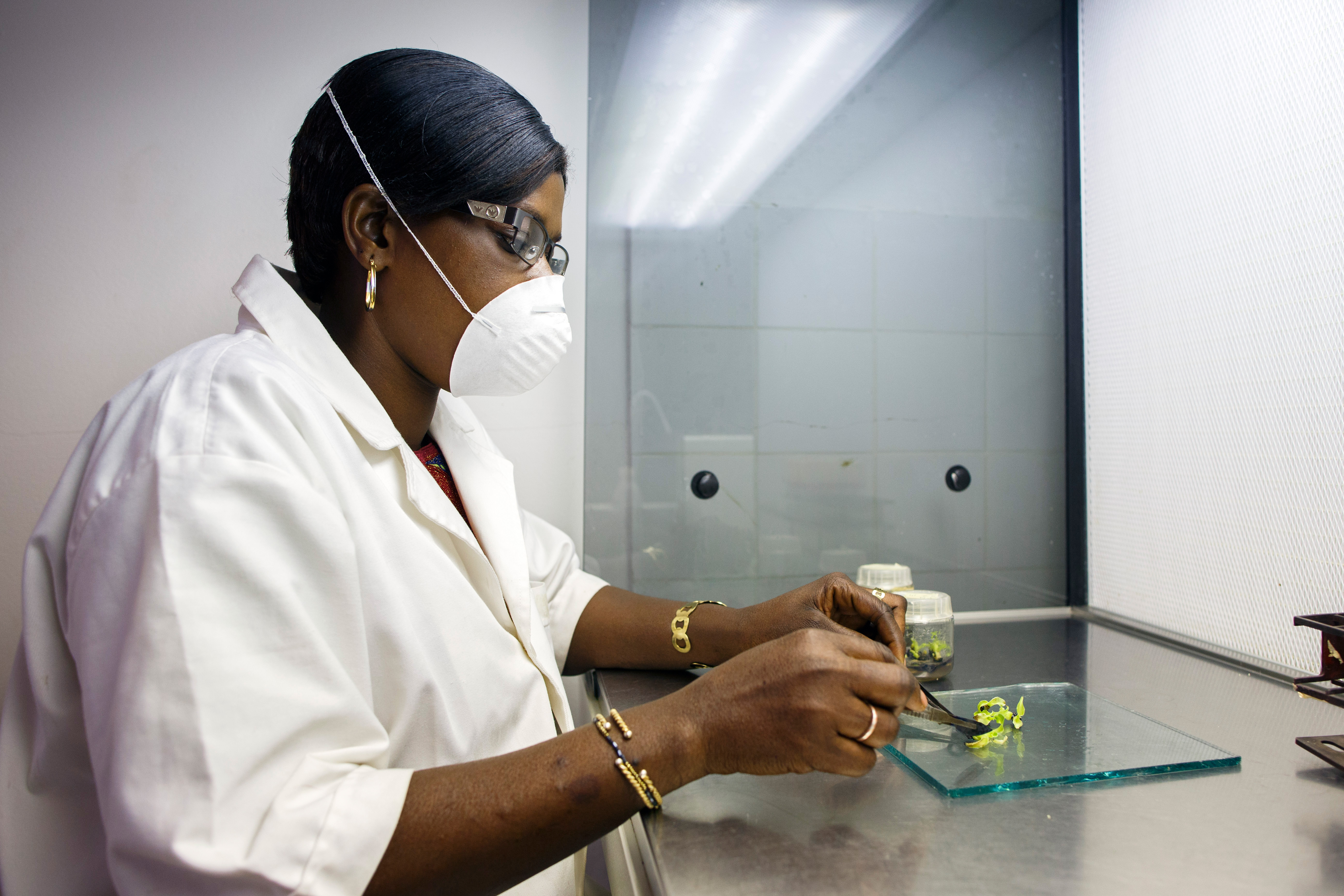Background How science and research contribute to sustainability goals
An employee of the Institute for Applied Agricultural Research and Training in Katibougou, Mali, dissects potato plants in the laboratory.
Higher education and support for science are an integral part of Goal 4 of the 2030 Agenda (“Quality education”). They also feed into all the other Sustainable Development Goals (SDGs). Global issues such as climate change and pandemics require solutions to be developed and implemented collaboratively.
Higher education and academic institutions and their innovative potential play a special role in this. They help reduce poverty, create the conditions for an effective economy, and provide the expertise and necessary data for realising the Sustainable Development Goals. For example:
- Equal and affordable access to high-quality vocational and academic education (SDG 4) strengthens women’s position in society (SDG 5). This in turn improves their health status and reduces child mortality (SDG 3).
- Research in the area of natural sciences contributes to climate action and the preservation of natural resources on land and below water (SDGs 13 to 15).
- Research and development can help to establish resilient infrastructure, thereby contributing to sustainable industrialisation (SDG 9).
- Academic collaborations help to facilitate equal access for all to the international system: the financial system, the global market, knowledge and technology (SDG 17).
As at: 26/07/2023
